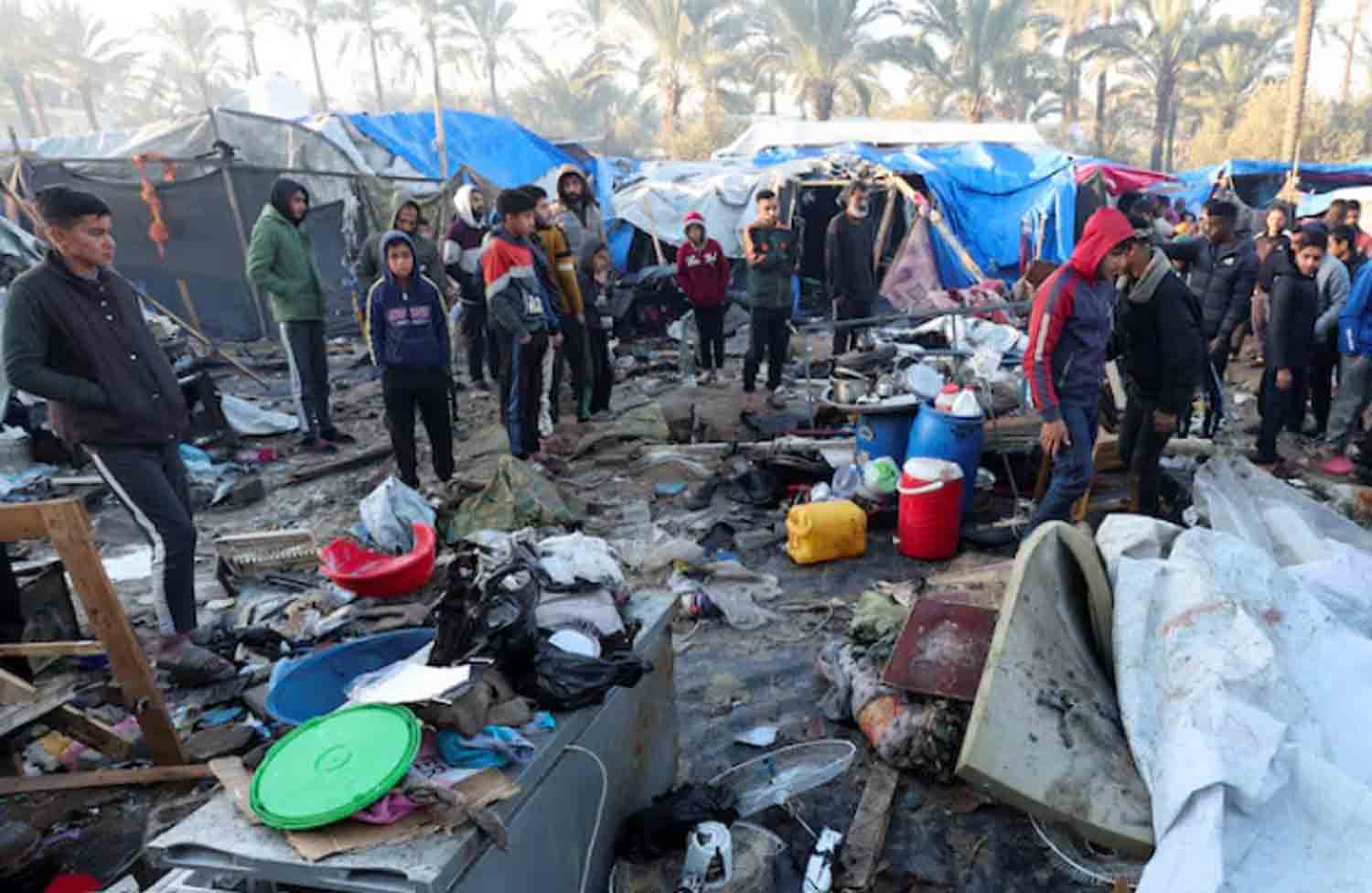The United Nations announced on Tuesday that it is actively preparing to enhance humanitarian aid to the Gaza Strip in anticipation of a possible ceasefire. However, challenges related to border access and security within the region continue to pose significant hurdles.
Negotiators in Qatar are finalizing the terms of a ceasefire between Israel and Hamas, with both mediators and the involved parties indicating that an agreement is closer than ever. This truce is expected to facilitate a substantial increase in humanitarian assistance to Gaza.
Sigrid Kaag, the U.N. humanitarian and reconstruction coordinator for Gaza, recently held discussions with Israeli and Palestinian officials and spoke with the Egyptian foreign minister on Tuesday regarding the U.N.’s role in the ceasefire efforts, as stated by U.N. spokesperson Stephane Dujarric.
Dujarric emphasized that the U.N. is engaged in extensive planning to determine how to effectively increase aid once a ceasefire is established.
Key uncertainties remain, particularly regarding which border crossings will be accessible for aid delivery and the security conditions in Gaza, as many shipments have faced threats from armed groups and looters during the ongoing conflict. Dujarric acknowledged that these issues will continue to be problematic due to the lack of clear answers.
The U.N. has consistently raised concerns about obstacles to aid delivery in Gaza throughout the 15-month conflict, citing both Israeli actions and the prevailing lawlessness in the region as significant impediments to the provision of assistance.
“strong likelihood of imminent famine”
Global food security experts issued a warning in November about the “strong likelihood of imminent famine” in northern Gaza. According to Palestinian health officials, over 46,000 individuals have lost their lives due to Israel’s military actions in Gaza.
Israel claims that the aid delivered to Gaza, which it estimates at over a million tons in the past year, has been sufficient. However, it accuses Hamas of diverting this assistance before it can reach those in need. Hamas has refuted these claims, attributing the shortages to Israeli actions.
The future of the U.N. Palestinian relief agency, UNRWA, which the U.N. identifies as essential for aid operations in Gaza, remains uncertain due to an impending law that will prohibit its operations on Israeli territory and contact with Israeli authorities.
Dujarric stated that the U.N. and its partner organizations are making every effort to assist Palestinians with severely limited resources. “Nevertheless, ongoing conflicts, violent looting, and systematic access restrictions are significantly hindering our initiatives,” he noted. “Damage to roads, unexploded ordnance, fuel shortages, and inadequate telecommunications equipment are further obstructing our operations.”
“It is crucial that essential aid and commercial goods are allowed to enter Gaza through all available border crossings without delay and at the necessary scale,” he emphasized.
On October 7, 2023, Hamas was responsible for the deaths of 1,200 individuals in southern Israel and the abduction of approximately 250 hostages, according to Israeli reports. Since that time, Israel has caused extensive destruction in Gaza, leading to multiple displacements of the territory’s prewar population of 2.3 million, as reported by humanitarian agencies.
Discover more from Defence Talks | Defense News Hub, Military Updates, Security Insights
Subscribe to get the latest posts sent to your email.





